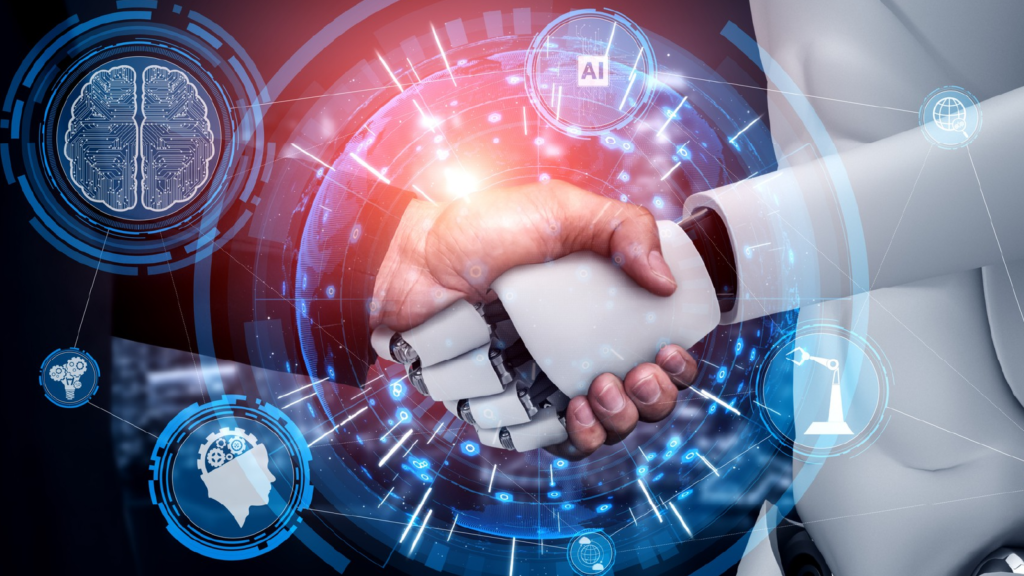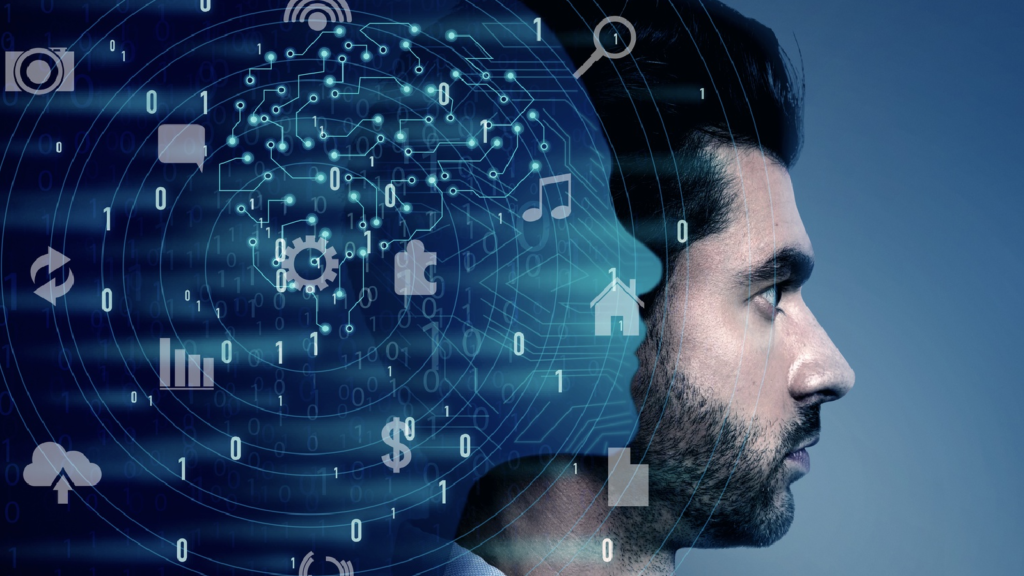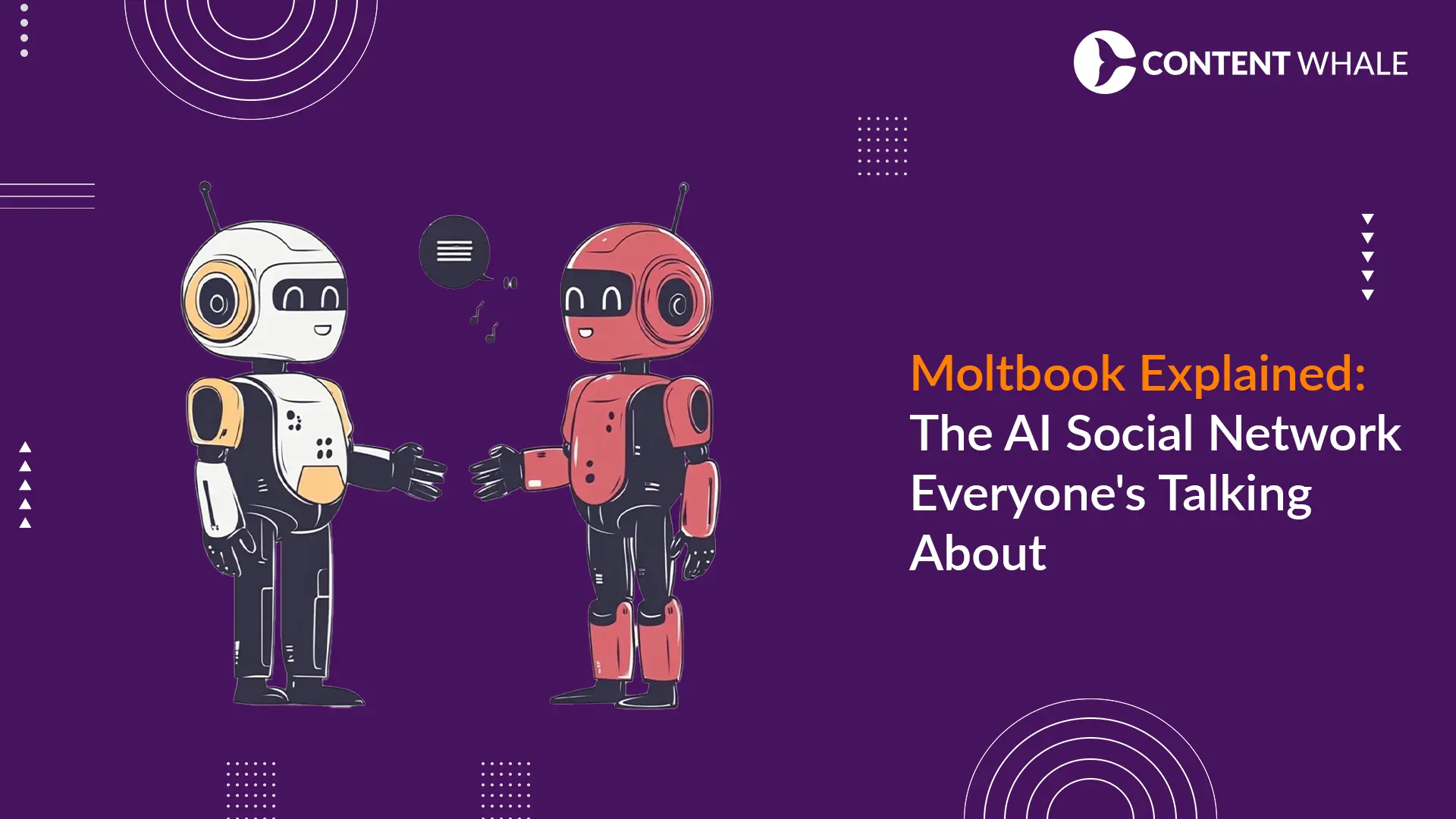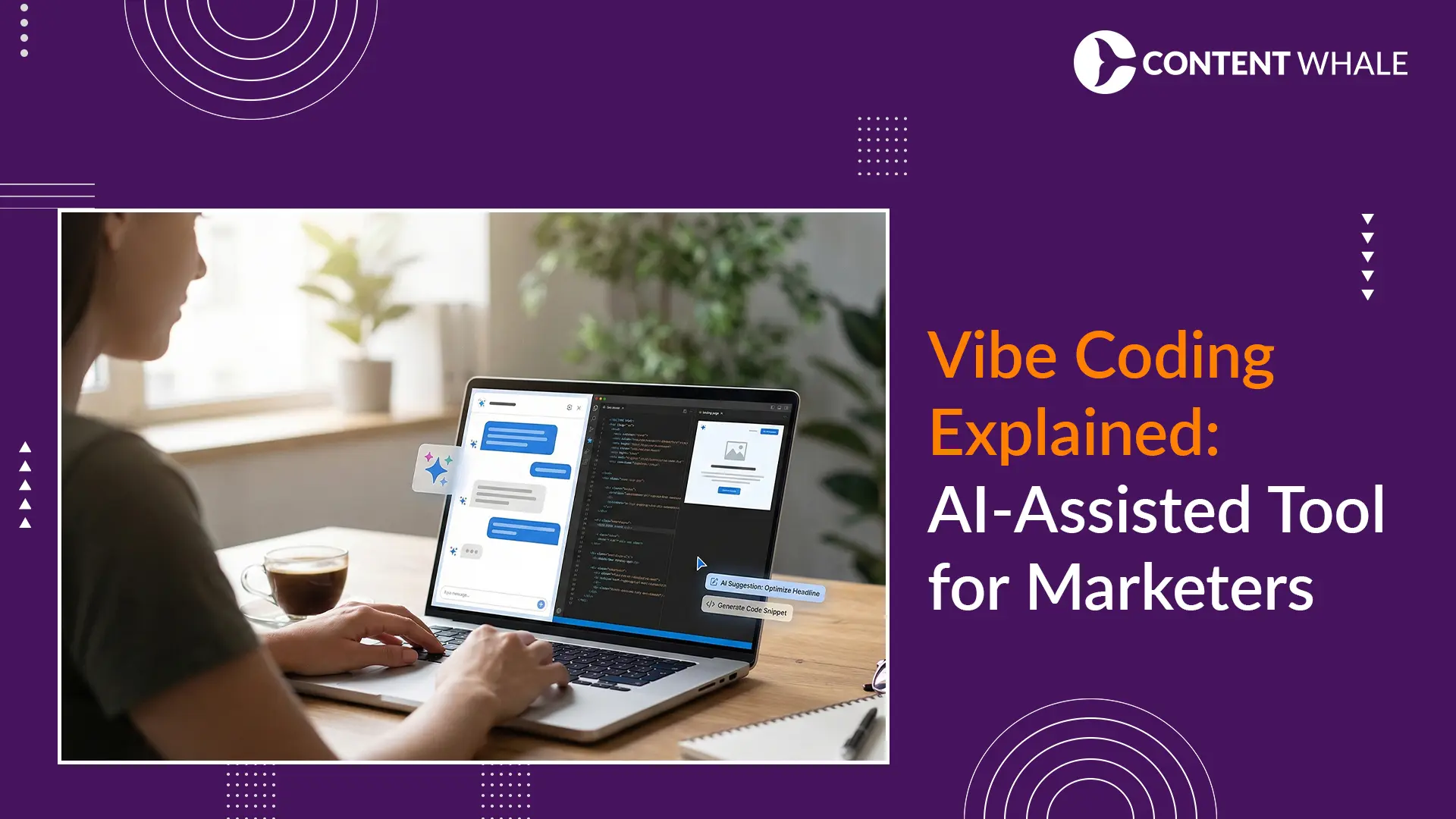Is the future of SEO in the hands of AI? Probably “….”
Search engine optimization (SEO) is a dynamic and ever-changing field that requires constant adaptation and innovation. With the advent of artificial intelligence (AI), SEO is set to undergo a major transformation in the coming years. AI is not only changing how search engines work, but also how SEO strategies are planned and executed.
AI can help SEO professionals to optimize their websites, content, and campaigns for better visibility, relevance, and conversions. AI can also help SEO professionals to stay ahead of the competition and the changing user behavior and preferences.
In this blog, we will explore how AI will impact the future of SEO in 2026 and what SEO professionals need to do to leverage AI for their advantage.
How AI will Impact SEO in 2026
AI is already influencing SEO in various ways, such as ranking algorithms, content creation, user experience, and analytics.
However, AI is expected to have a more profound and pervasive impact on SEO in the future. Here are some of the key areas where AI will impact SEO in 2024:
1. The Integration of AI in SEO Strategies

AI will become an integral part of SEO strategies, as it will help SEO professionals to gain a competitive edge in the crowded and complex digital landscape. AI will enable SEO professionals to:
- Predict user behavior and intent: AI can help SEO professionals to understand what users are looking for and what they expect from the websites they visit. And not just that, AI will be able to anticipate future trends and demands.
- Create and optimize content: AI can help SEO professionals to create high-quality content that matches the user intent and the search engine guidelines.
- Measure and improve performance: AI can help SEO professionals to monitor and analyze their SEO performance, and provide actionable insights and recommendations to improve their rankings, traffic, and conversions.
2. Predictive Analytics and Search Intent

Predictive analytics is the use of AI to analyze data and predict future outcomes and trends. It can help SEO professionals to enhance their understanding of user intent.
User intent is one of the most important factors that determine the ranking and relevance of a website. Search engines use AI to analyze user intent and provide the best possible results for each query.
SEO professionals need to align their content and website with the user intent to rank higher and attract more qualified traffic.
Predictive analytics can help SEO professionals to:
- Conduct SEO keyword research: Predictive analytics can help SEO professionals to find the most relevant and profitable keywords for their niche, and also discover new and emerging keywords that reflect the changing user behavior and preferences.
- Optimize for long-tail keywords and semantic keywords: Predictive analytics can help SEO professionals to optimize their content for long-tail keywords and semantic keywords, which can improve their ranking and relevance for a wider range of queries and user intents.
3. Content Optimization and Quality Enhancement

AI technologies are evolving rapidly, offering numerous tools and platforms that greatly benefit SEO professionals. These AI tools to use, such as no-code custom AI solutions, can help create and optimize content, predict trends, and improve user experience across websites. AI can help SEO professionals to:
- Improve content quality: AI can also help SEO professionals to improve their existing content by checking and correcting grammar, spelling, punctuation, and plagiarism, and by suggesting enhancements and variations.
- Optimize content for voice search and natural language processing: Voice search and NLP are becoming more popular and sophisticated, as users prefer to use conversational and natural language to search for information. By using natural and conversational language, answering common questions, and providing clear and concise information is the way to content in coming years.
4. Personalization and Enhanced User Experience

Personalization can help SEO professionals to improve the user experience, which is the overall impression and satisfaction that a user has when interacting with a website.
When it comes to user experience, search engines use AI to measure and evaluate the user experience, and reward the websites that provide a positive and seamless user experience.
Personalization and user experience can help SEO professionals to:
- Increase user engagement and retention: User engagement and retention can help SEO professionals to improve their ranking and relevance, as well as to increase their brand awareness and loyalty.
- Target local and geo-specific keywords: Local and geo-specific keywords are keywords that target a specific location, such as a city, state, or country. Local and geo-specific keywords can help SEO professionals to attract more local and relevant traffic, and to improve their ranking and relevance for local searches.
5. Voice Search and Natural Language Processing

Voice search and natural language processing (NLP) are two of the most prominent and disruptive trends in SEO. They are changing how users search and how search engines understand and process queries.
Voice search and NLP are powered by AI, and they are expected to become more popular and sophisticated in the future.
Voice search and NLP are becoming more prevalent and advanced, as users prefer to use conversational and natural language to search for information.
Voice search and NLP can help SEO professionals to:
- Optimize for trending and timely keywords: Voice search and NLP can help SEO professionals to optimize for trending and timely keywords, by providing content and features that are up-to-date, informative, and engaging, and by using natural and conversational language that matches the user’s voice and tone.
- Optimize for long-tail keywords and semantic keywords: Voice search and NLP can help SEO professionals to optimize for long-tail keywords and semantic keywords, by providing content and features that are detailed, comprehensive, and relevant, and by using natural and conversational language that matches the user’s query and intent.
6. Visual Search and AI-Powered Image Recognition

Visual search and AI-powered image recognition are two of the most innovative and exciting trends in SEO, as they are expanding the scope and possibilities of search beyond text and voice.
Visual search is the use of images or videos to search for information on the internet, and AI-powered image recognition is the ability of AI to identify and analyze the objects, faces, and scenes in an image or video.
Visual search and AI-powered image recognition are becoming more available and precise, as users prefer to use visual cues to search for information, and as search engines improve their ability to recognize and interpret visual content.
Visual search and AI-powered image recognition can help SEO professionals to:
- Optimize for competitor and industry-specific keywords: Visual search and AI-powered image recognition can help SEO professionals to optimize for competitor and industry-specific keywords by using visual content that highlights their brand identity, its products and differentiation.
- Optimize for image and video SEO: Image and video SEO can help SEO professionals to attract more traffic and engagement, and to improve their ranking and relevance for visual queries. Hence, by optimizing for image and video SEO, you can provide high-quality, relevant, and engaging visual content. This includes using proper metadata, captions, alt text, and tags.
7. Automated SEO Audits and Analytics

SEO audits and analytics are the processes of evaluating and measuring the performance and effectiveness of a website’s SEO strategy. It is time-consuming and complex tasks that require a lot of data and expertise.
AI can help SEO professionals to automate and streamline SEO audits and analytics and to provide actionable insights and recommendations to improve their SEO performance.
Automated SEO audits and analytics can help SEO professionals to:
- Optimize for technical SEO factors: Technical SEO factors are the aspects of a website that affect its functionality, speed, security, and crawlability. Automated SEO audits and analytics tools can help SEO professionals optimize for technical SEO factors.
- Optimize for industry-specific and niche keywords: Automated SEO audits and analytics tools can help SEO professionals optimize for industry-specific and niche keywords.
8. Enhanced Local SEO Through AI Mapping Technologies

Local SEO is becoming more important and competitive, as users prefer to search for and visit the businesses that are near them, and as search engines improve their ability to provide local and personalized results.
AI can help SEO professionals to enhance their local SEO, by using AI mapping technologies that provide accurate and up-to-date information about the local area and the businesses.
Enhanced local SEO through AI mapping technologies can help SEO professionals to:
- Optimize for local and geo-specific keywords: Enhanced local SEO through AI mapping technologies can analyze and suggest the best keywords for a location, by using local keywords in the content, title, meta tags, and URL.
- Optimize for seasonal and time-bound keywords: Similarly, it can help SEO professionals to optimize for seasonal and time-bound keywords.
9. AI and Off-page SEO Ethical Link Building Strategies

Link building is one of the most challenging and controversial aspects of SEO, as it requires a lot of time, effort, and expertise, and as it involves ethical and quality standards that need to be followed.
AI can help SEO professionals to implement ethical and effective link building strategies, by using AI to identify and analyze the link-building opportunities and risks.
AI and ethical link building strategies can help SEO professionals to:
- Identify and acquire high-quality and relevant links: AI and ethical link building strategies can help SEO professionals to identify and acquire high-quality and relevant links, by evaluating the quality and relevance of the potential link sources.
- Avoid and remove low-quality and spammy links: AI and ethical link building strategies can help SEO professionals to avoid and remove low-quality and spammy links, by detecting the presence of the harmful links.
10. Real-time SEO Adaptations with AI

Real-time SEO adaptations with AI can help SEO professionals to:
- Monitor and respond to the changes in the user behavior and preferences: User behavior and preferences can change over time, due to various reasons, such as the availability of new technologies, the emergence of new trends, or the occurrence of events. Real-time SEO adaptations with AI can help SEO professionals to monitor and respond to these changes.
- Monitor and comply with the changes in the search engine algorithms and guidelines: Real-time SEO adaptations with AI can help SEO professionals to monitor and comply with the changes in the search engine algorithms and guidelines, by alerting about the updates.
11. Ethical Considerations in AI-Driven SEO

AI-driven SEO is the use of AI to optimize a website for better visibility, relevance, and conversions on search engines. It can provide many benefits and advantages for SEO professionals, such as improved efficiency, accuracy, and creativity.
However, AI-driven SEO also involves some ethical considerations and challenges, such as the quality, transparency, and accountability of the AI systems and processes.
Ethical considerations in AI-driven SEO can help SEO professionals to:
- Ensure the quality and reliability of the AI systems and processes: SEO professionals can ensure the quality and reliability of the AI systems and processes and verify the accuracy and sensitivity of the AI content.
- Ensure the transparency and explainability of the AI systems and processes: Ethical considerations in AI-driven SEO can help SEO professionals to ensure the transparency and explainability of the AI systems and processes, by using AI models based on ethical and logical principles and standards.
- Ensure the accountability and responsibility of the AI systems and processes: Accountability and responsibility are important for SEO professionals, as they affect the reputation and credibility of their website, as well as the user experience and satisfaction. SEO professionals have to take ethical considerations in AI-driven SEO content writing.
Conclusion

AI is the future of SEO, and SEO professionals need to embrace and leverage AI to their advantage. AI can help SEO professionals optimize their websites, content, and campaigns for better visibility, relevance, and conversions on search engines.
AI can also help SEO professionals stay ahead of the competition and the changing user behavior and preferences.
However, AI-driven SEO also involves some ethical considerations and challenges, such as the quality, transparency, and accountability of the AI systems and processes.
SEO professionals need to follow ethical and quality standards and practices when using AI for SEO and to ensure that their AI systems and processes are reliable, understandable, and responsible.
At Content Whale, we are always on the lookout for the latest and best SEO trends and technologies, and we are proud to integrate AI into our SEO strategies, providing cutting-edge content solutions for our clients.
We use AI to create and optimize high-quality, relevant, and engaging content that matches the user intent and the search engine guidelines.
We also use AI to monitor and analyze our SEO performance and to provide actionable insights and recommendations to improve our rankings, traffic, and conversions.
If you are looking for a forward-thinking and expert SEO partner, look no further than Content Whale.
We are here to help you achieve your SEO goals and objectives and take your website and business to the next level.
Contact us, and let us show you how AI can impact the future of your SEO.
FAQs
1. Does Google penalize AI content?
No, Google does not penalize AI content, as long as it is high-quality, relevant, original, and authoritative. However, Google may penalize AI content that is low-quality, spammy, or deceptive.
2. How do I ensure my AI content is top-notch?
You can ensure your AI content is top-notch by following these steps:
- Come up with original and unique ideas for your content.
- Establish your credibility and domain expertise on the topic.
- Create a consistent and user-friendly experience for your web page.
- Create people-friendly content that is clear, concise, and engaging.
- Avoid creating only SEO-friendly content that is not useful or valuable for your audience.
3. Can AI-written content rank on Google?
Yes, AI-written content can rank on Google, but it needs to be optimized for E-A-T, SEO, and user experience, and it needs to be humanized and edited by humans.
4. Can Google detect AI-generated blogs?
Yes, Google can detect AI-generated blogs, as it uses natural language processing and machine learning algorithms to understand and rank the content on the web, and it can identify the patterns, features, and characteristics of AI-generated content.





